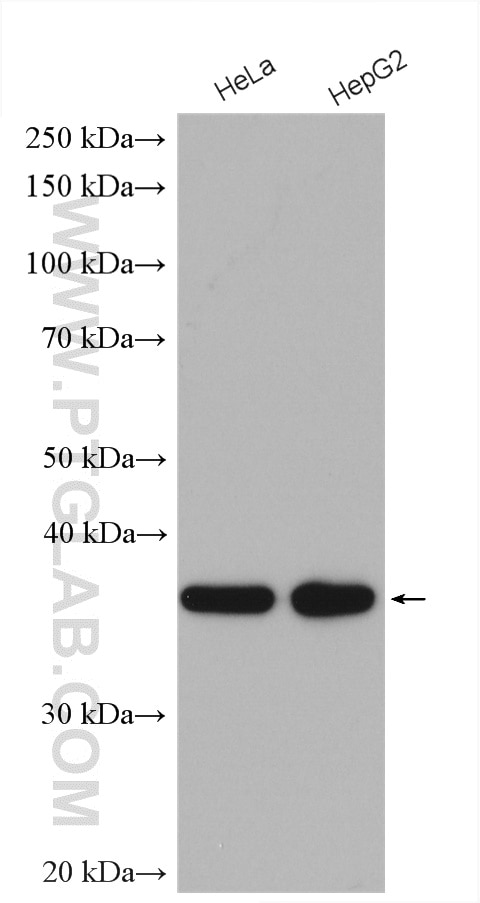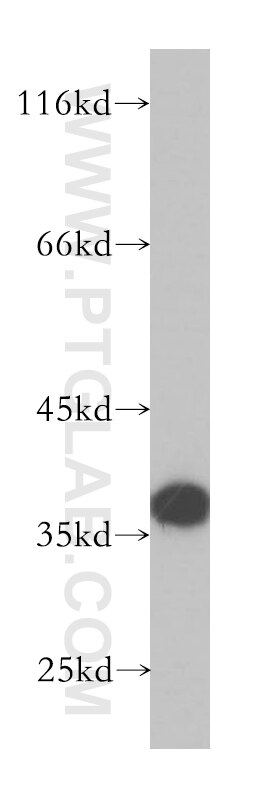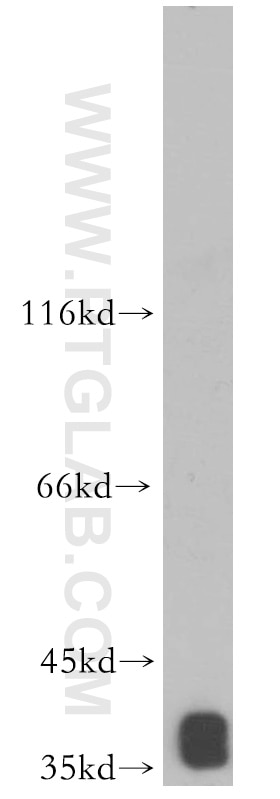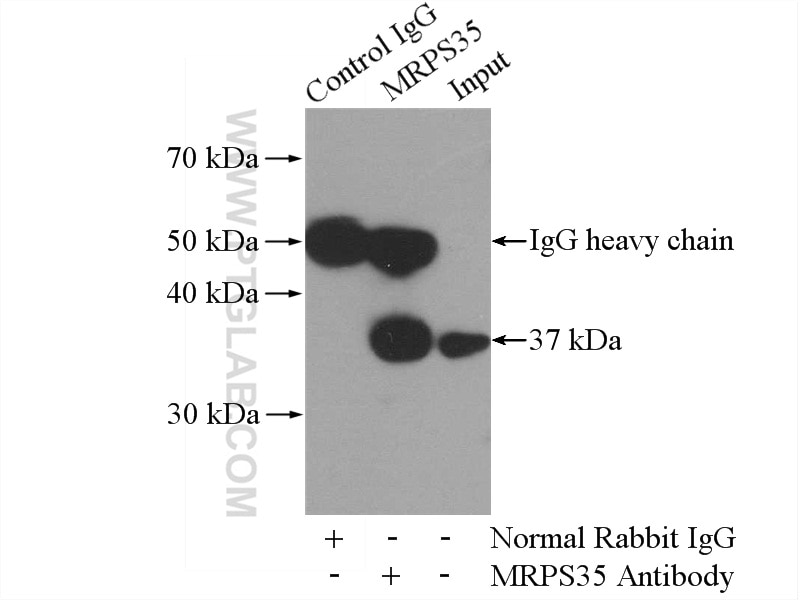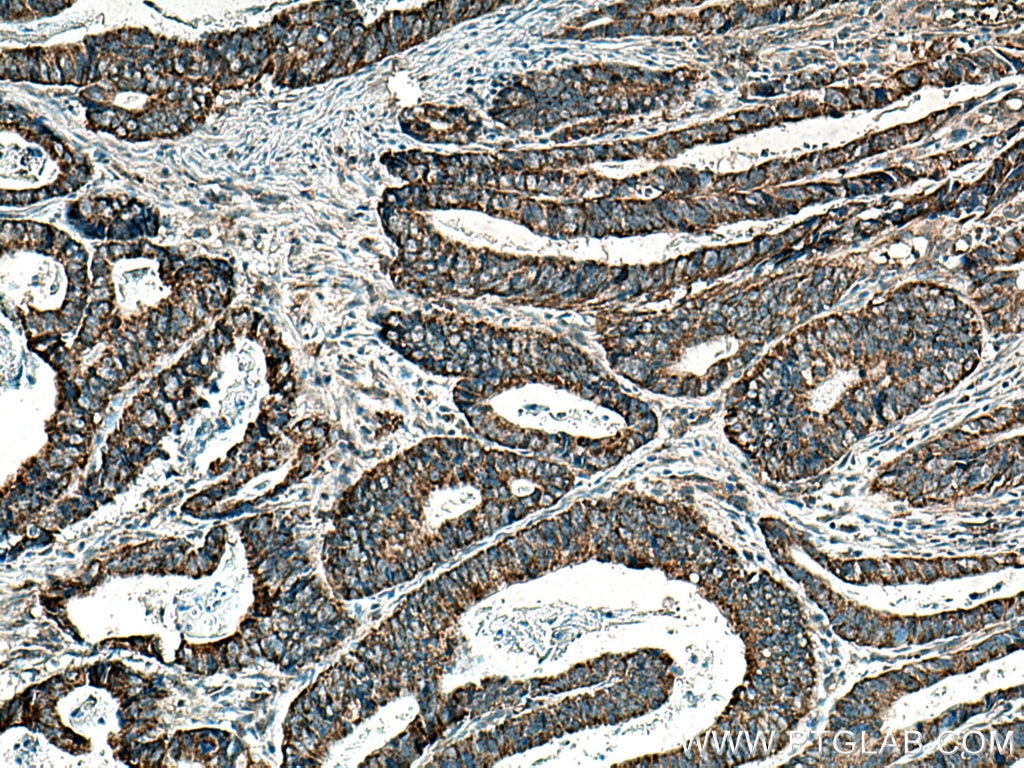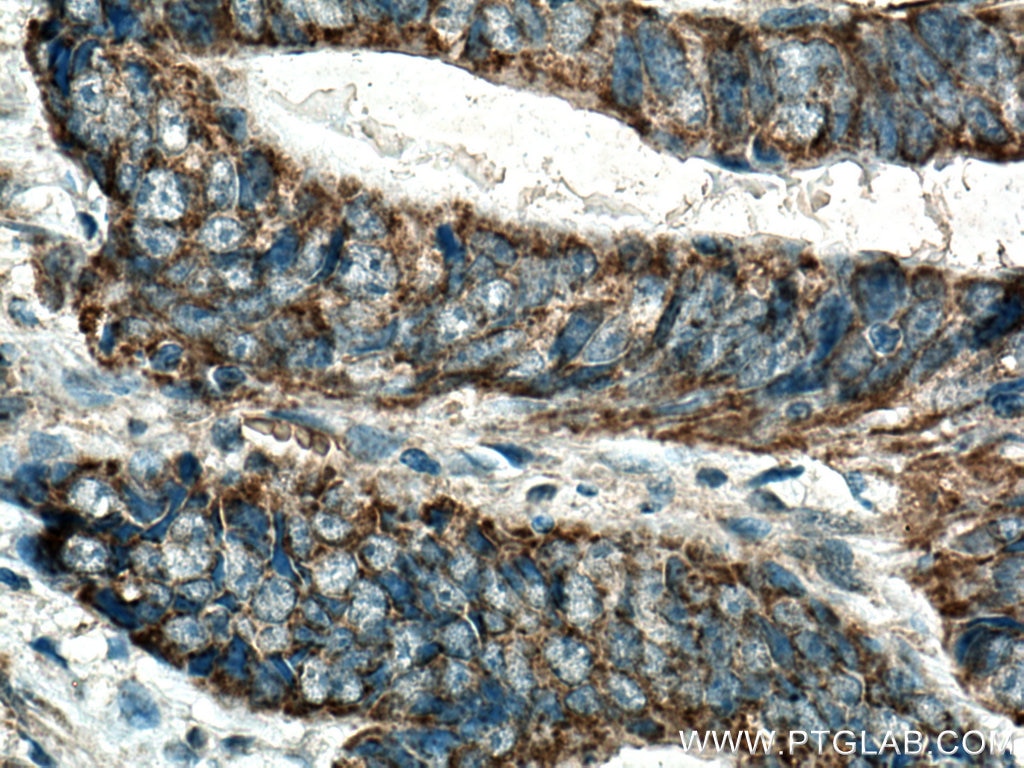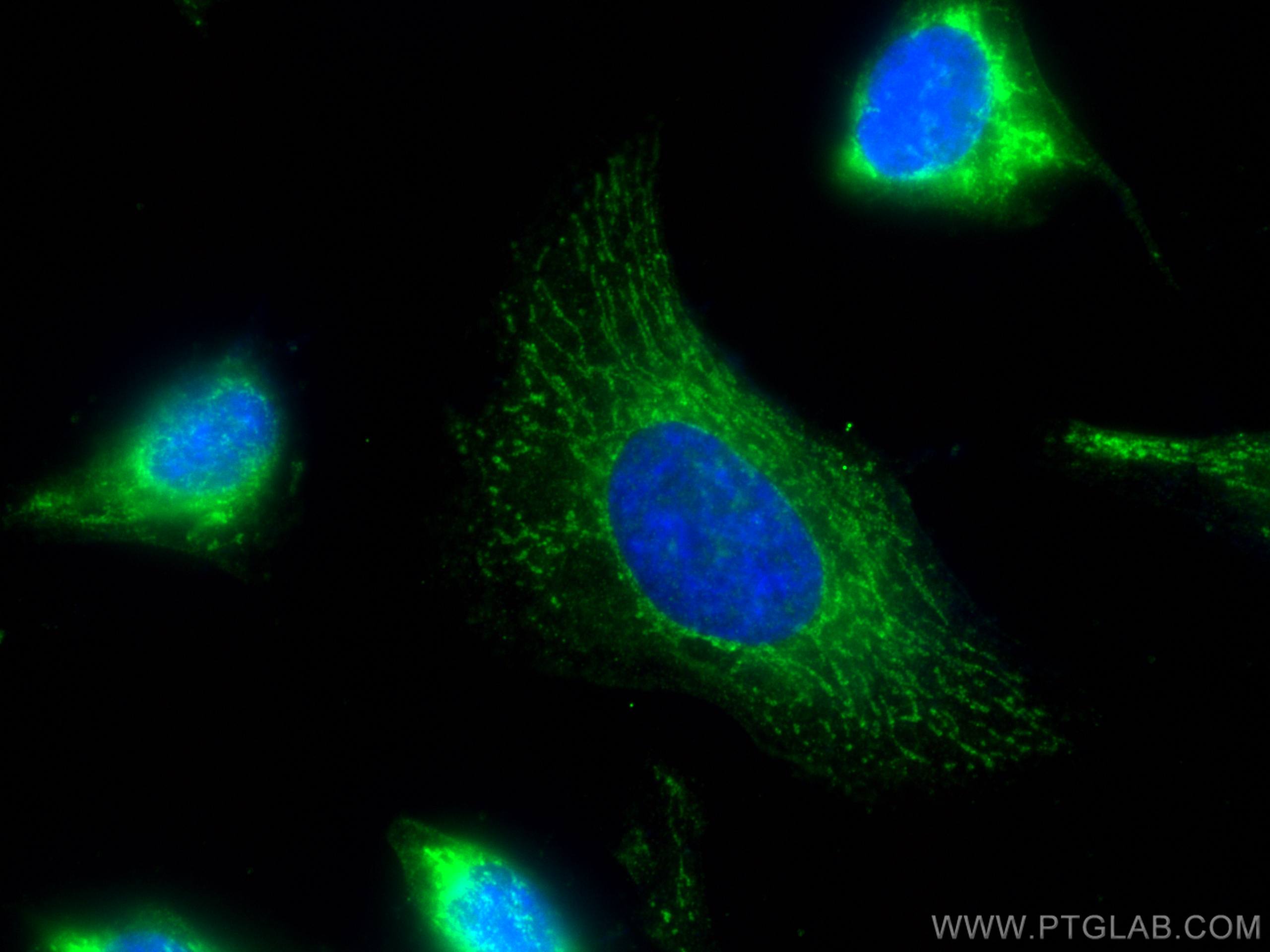MRPS35 Polyklonaler Antikörper
MRPS35 Polyklonal Antikörper für IF, IHC, IP, WB, ELISA
Wirt / Isotyp
Kaninchen / IgG
Getestete Reaktivität
human, Maus, Ratte
Anwendung
WB, IP, IHC, IF, ELISA
Konjugation
Unkonjugiert
Kat-Nr. : 16457-1-AP
Synonyme
Galerie der Validierungsdaten
Geprüfte Anwendungen
| Erfolgreiche Detektion in WB | HeLa-Zellen, HepG2-Zellen, humanes Herzgewebe |
| Erfolgreiche IP | HeLa-Zellen |
| Erfolgreiche Detektion in IHC | humanes Kolonkarzinomgewebe Hinweis: Antigendemaskierung mit TE-Puffer pH 9,0 empfohlen. (*) Wahlweise kann die Antigendemaskierung auch mit Citratpuffer pH 6,0 erfolgen. |
| Erfolgreiche Detektion in IF | HeLa-Zellen |
Empfohlene Verdünnung
| Anwendung | Verdünnung |
|---|---|
| Western Blot (WB) | WB : 1:2000-1:10000 |
| Immunpräzipitation (IP) | IP : 0.5-4.0 ug for 1.0-3.0 mg of total protein lysate |
| Immunhistochemie (IHC) | IHC : 1:50-1:500 |
| Immunfluoreszenz (IF) | IF : 1:50-1:500 |
| It is recommended that this reagent should be titrated in each testing system to obtain optimal results. | |
| Sample-dependent, check data in validation data gallery | |
Veröffentlichte Anwendungen
| WB | See 28 publications below |
| IP | See 1 publications below |
Produktinformation
16457-1-AP bindet in WB, IP, IHC, IF, ELISA MRPS35 und zeigt Reaktivität mit human, Maus, Ratten
| Getestete Reaktivität | human, Maus, Ratte |
| In Publikationen genannte Reaktivität | human, Maus |
| Wirt / Isotyp | Kaninchen / IgG |
| Klonalität | Polyklonal |
| Typ | Antikörper |
| Immunogen | MRPS35 fusion protein Ag9430 |
| Vollständiger Name | mitochondrial ribosomal protein S35 |
| Berechnetes Molekulargewicht | 323 aa, 37 kDa |
| Beobachtetes Molekulargewicht | 37 kDa |
| GenBank-Zugangsnummer | BC015862 |
| Gene symbol | MRPS35 |
| Gene ID (NCBI) | 60488 |
| Konjugation | Unkonjugiert |
| Form | Liquid |
| Reinigungsmethode | Antigen-Affinitätsreinigung |
| Lagerungspuffer | PBS mit 0.02% Natriumazid und 50% Glycerin pH 7.3. |
| Lagerungsbedingungen | Bei -20°C lagern. Nach dem Versand ein Jahr lang stabil Aliquotieren ist bei -20oC Lagerung nicht notwendig. 20ul Größen enthalten 0,1% BSA. |
Hintergrundinformationen
Mammalian mitochondrial ribosomes (mitoribosomes) are responsible for protein synthesis within the mitochondrion. The mitoribosomes are composed of a 4:1 ratio of protein to RNA, with the proteins forming two subunits, the 28S subunit and the 39S subunit. Across species, the proteins that make up the mitoribosome subunits vary greatly in sequence, preventing easy recognition by sequence homology. MRPS35 (mitochondrial ribosomal protein S35), also known as MDS023, MRPS28 or HDCMD11P, is a 323 amino acid protein that localizes to the mitochondrion, where it exists as a component of the 28S ribosomal subunit and works in conjunction with other MRPs to mediate protein synthesis. Existing as two alternatively spliced isoforms, MRPS35 is encoded by a gene located on human chromosome 10, which houses over 1,200 genes and comprises nearly 4.5% of the human genome. This antibody is a rabbit polyclonal antibody raised against the full length MRPS35 protein. It specifically reacts with the 37kd MRPS35protein.
Protokolle
| Produktspezifische Protokolle | |
|---|---|
| WB protocol for MRPS35 antibody 16457-1-AP | Protokoll herunterladen |
| IHC protocol for MRPS35 antibody 16457-1-AP | Protokoll herunterladen |
| IF protocol for MRPS35 antibody 16457-1-AP | Protokoll herunterladen |
| IP protocol for MRPS35 antibody 16457-1-AP | Protokoll herunterladen |
| Standard-Protokolle | |
|---|---|
| Klicken Sie hier, um unsere Standardprotokolle anzuzeigen |
Publikationen
| Species | Application | Title |
|---|---|---|
Cell Metab Integrative genetic analysis identifies FLVCR1 as a plasma-membrane choline transporter in mammals | ||
Sci Adv Fidelity of translation initiation is required for coordinated respiratory complex assembly. | ||
Cell Metab Tissue-Specific Loss of DARS2 Activates Stress Responses Independently of Respiratory Chain Deficiency in the Heart. | ||
J Clin Invest AFG3L2 supports mitochondrial protein synthesis and Purkinje cell survival. | ||
Nat Commun Loss of the RNA-binding protein TACO1 causes late-onset mitochondrial dysfunction in mice. |
